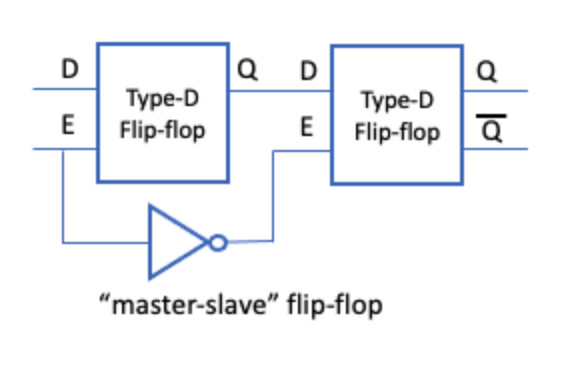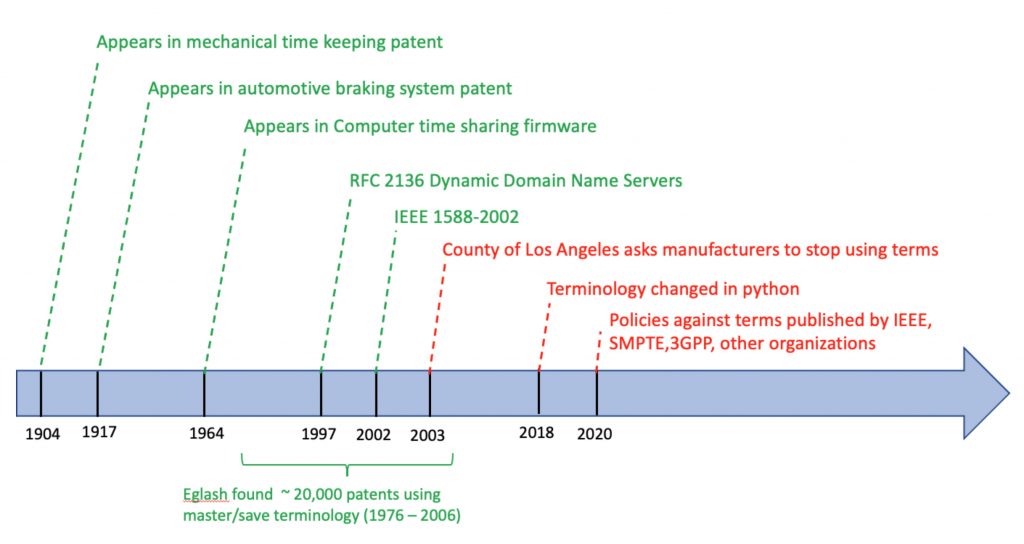Five Minute Facts about Packet Timing
The IEEE Standards Association will soon published IEEE 1588g-2022, an amendment to IEEE 1588-2019. The amendment recommends optional alternative terms for master and slave. The terms selected are:
- timeTransmitter instead of master
- timeReceiver instead of slave
The obvious concern is the one about the insensitivity of using the institution of slavery as a technical analogy. Another concern is that many organizations have a mandate to stop using the master-slave nomenclature in technical communications, and the 1588 working group did not wish to see a confusing multiplication of alternate terminology. It might be too late to prevent that, as it is already starting, but we will see.The amendment does not replace the terms in the standard but only recommends these alternatives for anyone who would prefer to use terms different from master and slave. When the project was approved by the working group there was insufficient support to actually make the change throughout IEEE 1588. Some members of the working group expressed the following concerns:
- “Three editions of the standard have used the master-slave terminology. Changing now could confuse users of the standard.”
- “Industry has invested considerable resources in management interface software, technical manuals and marketing literature using the current terminology.”
- “This is an American political issue and not relevant for an international technical standard.”
These views were not universal in the working group, but there was enough opposition to limit the scope of the project.
So how did IEEE 1588 get started with referring to port states and clock roles as “master” and “slave” in the first place. When the first edition of 1588 was published in 2002, this terminology was thoroughly entrenched in the world of engineering. When I studied electrical engineering at a university in the 1980s my fellow students and I all had to learn about the master-slave flip-flop, shown in Figure 1.

This is one of many places where the nomenclature has been used. An excellent summary of the history and pervasiveness of the master-slave terminology in technical literature was given by Professor Ron Eglash, of the University of Michigan, in his paper “Broken Metaphor: The Master-Slave Analogy in Technical Literature” (Technology and Culture, April 2007). Among other things he found about 20,000 patents using this terminology that were awarded in the three decades prior to his paper on this topic.
Opposition to the master-slave terminology first came to the attention of the engineering world in 2003 when the County of Los Angeles asked manufacturers to stop using the term related to equipment that the county was procuring. Momentum for moving away from master-slave terminology started to accelerate in 2018 when the terms were replaced in the python language repository. See the timeline in Figure 2.

For IEEE 1588 these terms are a minor detail, mostly used as the names of port states. Yet the issue has resulted in more debate and especially more passionate debate than any other topic in the history of the standard. We held several ranked choice polls to determine the best new terminology choice and picked the terms “leader-follower”. This would have aligned IEEE 1588 with SMPTE, which had already moved to that nomenclature. However, in working group ballot several voters expressed strong objection to these terms. We eventually settled on terms that have no human-relationship analogy, even though they were no one’s favorite choice.
Lastly, no alternative for the term Grandmaster was recommend. The intention is that the term Grandmaster, as an analogy, refers to the use of the term to indicate that a person has achieved the highest level of knowledge and expertise in a discipline. This is consistent with the use of the term Grandmaster in chess and martial arts. Note that SMPTE also retained Grandmaster in their new terminology.
If you have any questions about precise time distribution, see the Meinberg website, or send me an email at doug.arnold@meinberg-usa.com.
If you enjoyed this post, or have any questions left, feel free to leave a comment or question below.